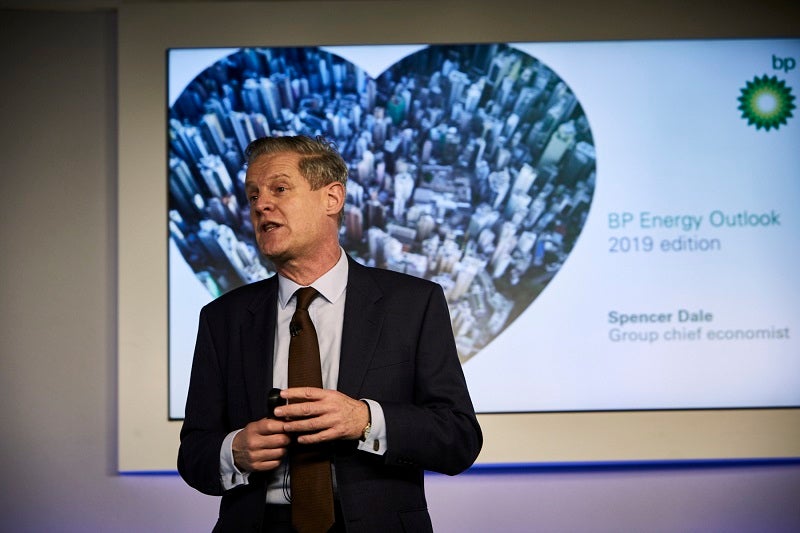
UK oil and gas company BP has shared its vision of the future of energy in its 2019 “Energy Outlook”, which finds that renewables are the largest source of energy growth in global power markets.
BP’s analysis is based on two scenarios: the ‘evolving transition’ (EV) scenario assumes that government policies will evolve at the same speed as previous years, while the ‘rapid transition’ (RV) scenario assumes that government policies will evolve faster than previous years.

Discover B2B Marketing That Performs
Combine business intelligence and editorial excellence to reach engaged professionals across 36 leading media platforms.
According to BP’s data, renewable energy accounted for 8.5% of the world’s power generation in 2017 and could rise to 29% by 2040. Europe is the leader in renewable energy power generation, with 21.7% of its energy coming from renewables, and could be at 53.4% by 2040.
BP predicts that renewable energy will penetrate the global energy system faster than any other form of energy in history. The company notes that it took 45 years for oil to increase from 1% to 10% of world energy, while renewables are expected to increase by the same amount in 15-25 years depending which scenario applies. BP concludes that “such rapid growth would be literally off-the-charts relative to anything seen in history.”
Energy Outlook notes that under the RV scenario, carbon emissions would fall 45% by 2040 but a “significant level of carbon emissions remain in 2040. In order to meet the Paris climate goals, in the second half of the century these remaining emissions would need to be greatly reduced and offset with negative emissions.”
BP group CEO Bob Dudley said: “The Outlook again brings into sharp focus just how fast the world’s energy systems are changing, and how the dual challenge of more energy with fewer emissions is framing the future. Meeting this challenge will undoubtedly require many forms of energy to play a role.”

US Tariffs are shifting - will you react or anticipate?
Don’t let policy changes catch you off guard. Stay proactive with real-time data and expert analysis.
By GlobalData





